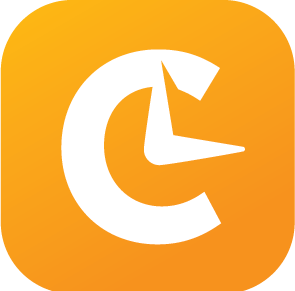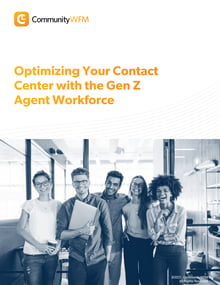
A contact center team can be a blend of many different ages of people from all walks of life. While this diversity can bring unique perspectives to the workplace, it can also sometimes result in a wide array of personal preferences throughout your agent workforce.
So how does a contact center succeed with employees ranging in age from 18 to 68 (or even older) working hard to help customers? Below are a few ways to leverage workforce management (WFM) software to help build a multi-generational contact center.
Understand the modern needs of young agents – It’s no secret that Gen Z (born after 1997) agents are changing the way contact centers operate. Prioritizing a mobile first and remote work environment, Gen Z wants their employment to fit into their lifestyle and not the other way around. One way contact centers can do this is by providing a way to accept or decline shift opportunities through a mobile app. While desktop pop ups or text messages may be preferred by a higher percentage of senior agents, getting a push notification where a Gen Z contact center agent can review and accept a shift change in a few taps on their phone helps to drive engagement and improve morale within the contact center.
Respect established responsibilities of tenured agents – While Gen Z agents may often want the latest and greatest in workplace technology, the more experienced agents within your contact center can have different priorities. This group of agents in general tends to prioritize quality of work over perks and prestige. They often have families or people relying on them for transportation, meals, or volunteer responsibilities. With this older generation, providing flexible scheduling options can be a significant value-add for a contact center. Solutions such as shift bidding can provide agents with a way to choose a schedule for the week that aligns with the demands of their life. For example, if an agent need to help coach their child’s soccer team on Tuesdays, they can bid only on schedules where they will have this day of the week off.
Understand that age trends aren’t always universal – It can be natural to think older agents may have better phone skills and younger agents have better computer skills for email and chat support. After all, it’s the technology these generations used when they were growing up and are accustomed to. However, this isn’t always the case, and even if an agent has strong chat skills they may not enjoy working on the channel with customers. To keep track of which agents have specific skills and desired channels, be sure to add this information directly into your WFM software solution. The technology will automatically factor in the unique skills and preferences of each agent when creating a schedule to ensure everyone is working on their desired channel as much as possible.
Promote personalization regardless of age – In an era where “bringing your whole self to work” has become a motto, it’s important to let agents express themselves positively and authentically in a group environment. Whether participating in themed dress up days with prizes or allowing agents to upload a fun selfie to their WFM software profile, it’s important to provide every agent with opportunities to be a part of the team. While strenuous athletic activities may be fun for some agents, they can also exclude others from participating. This isn’t ideal for team building, so lean towards inclusive activities that everyone can participate in and be generous with rewards.
In short, WFM software helps with building a multi-generational contact center because it provides impactful solutions for all age groups. Whether it’s shift flexibility or helping to break scheduling stereotypes, WFM software has solutions to positively impact both agent morale (regardless of age) and the bottom line of a contact center.








